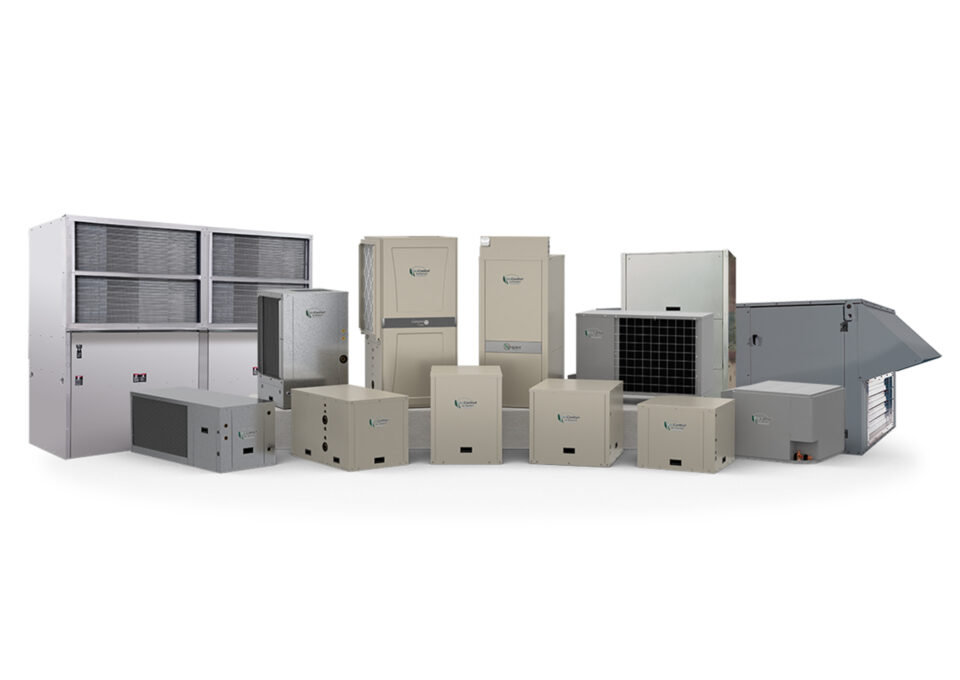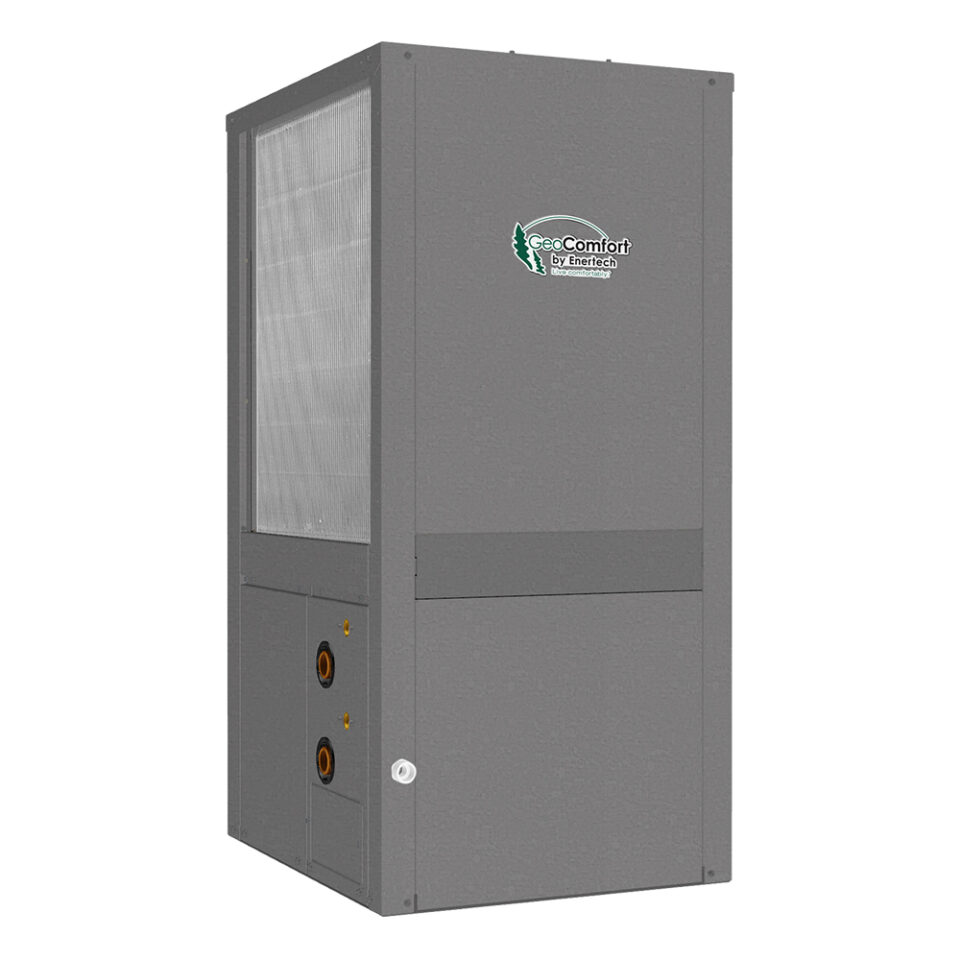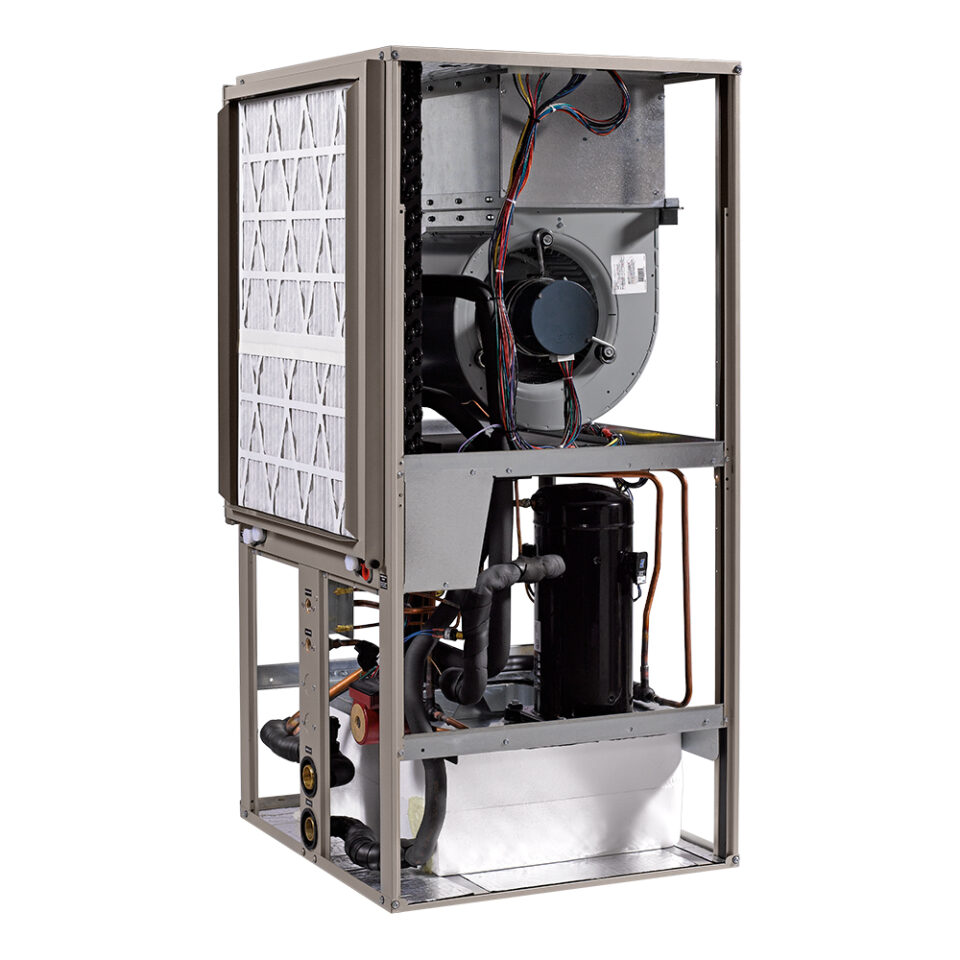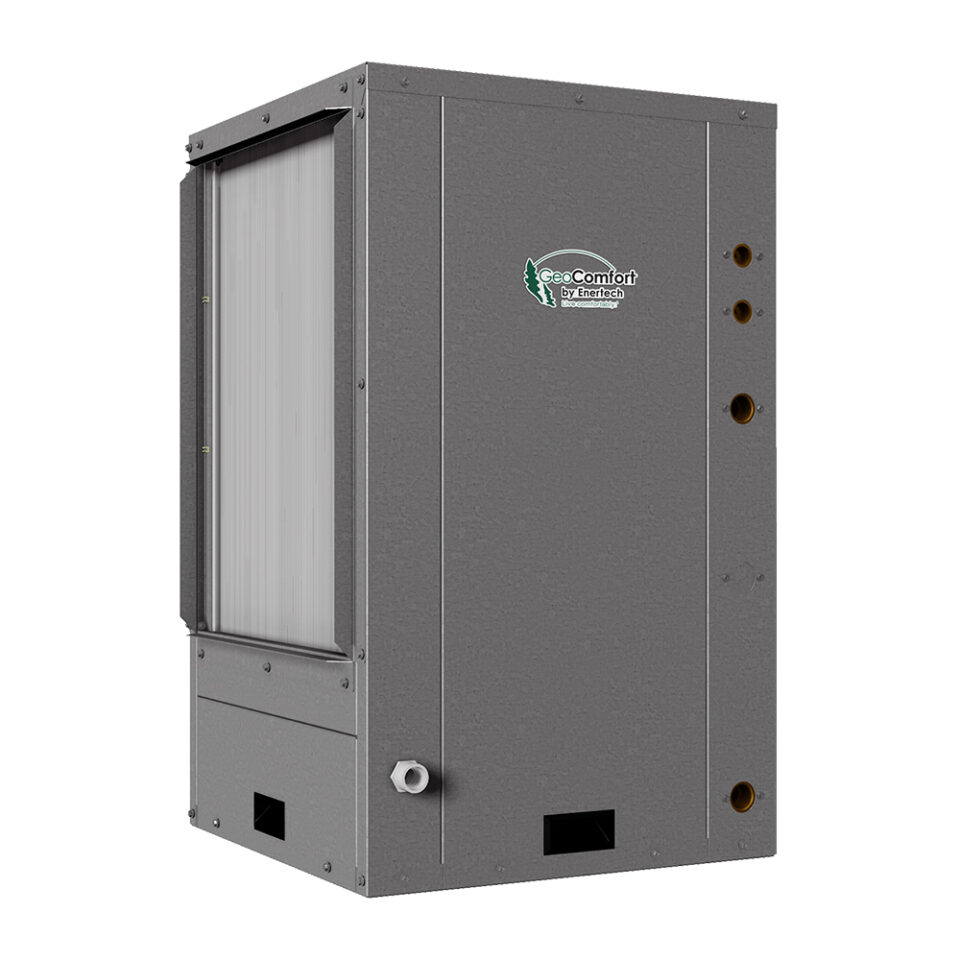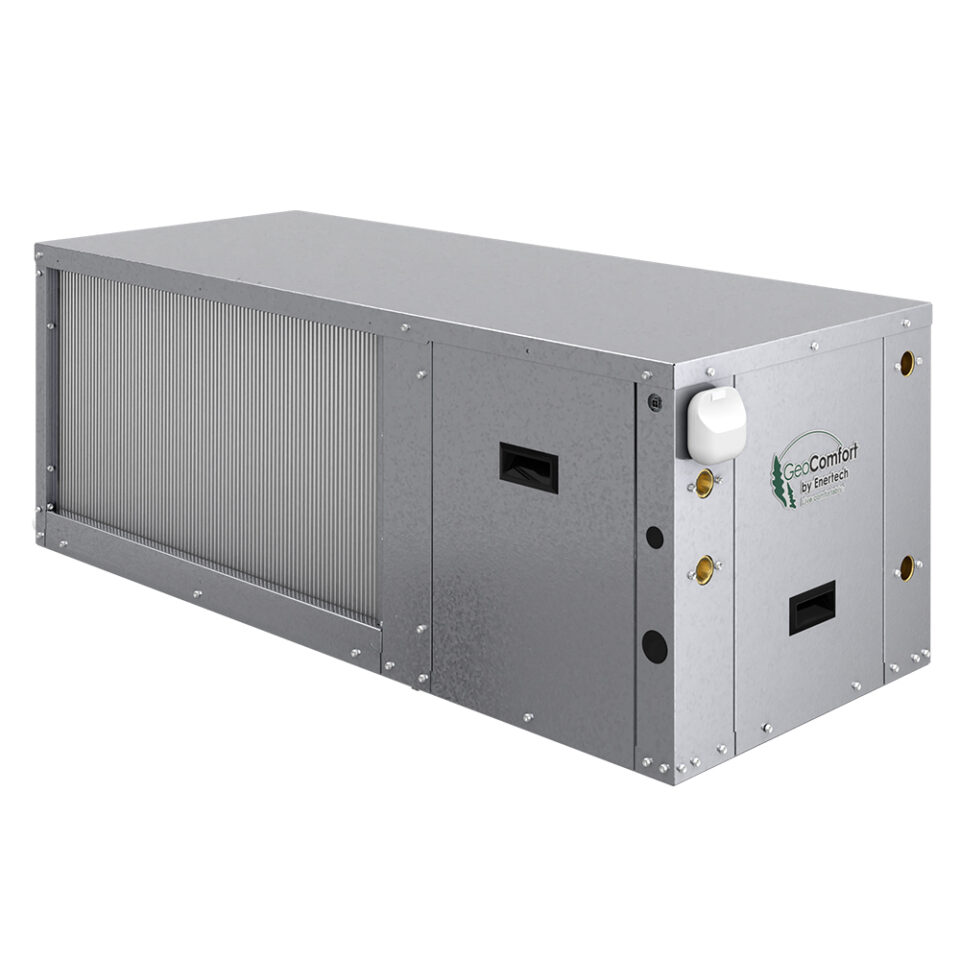GeoComfort Systems boasts a competitive edge due to its specialized component selection and advanced design. Its vertical-packaged units feature micro-channel air coils, preventing corrosion for a longer lifespan and greater reliability, a first in the industry. All equipment comes standard with ECM blower motors, which ensure quiet start-up and operate at a fraction of the cost of a conventional blower motor, thanks to their variable-speed capabilities.
- Compact Single or 2-Stage Horizontal/Vertical WSHPs
- Multi-Positional Two-Stage Vertical Packaged and Combo Units
- Single and 2-Stage Water-to-Water WSHPs
- Single and Two-Stage Indoor Split WSHPs
- Large Vertical Water-to-Air WSHPs
- Rooftop Water-to-Air Unit
A ground source heat pump (GSHP) and a geothermal heating and cooling system are the exact same thing. Geothermal systems are also referred to as ground source heat pumps because they use ground source energy (stored solar energy) to heat and cool homes.
The earth absorbs almost 50% of the sun’s solar energy and stores it below the surface. The ground loop powering a geothermal system uses renewable energy to heat and cool homes. Traditional forms of heating and cooling, such as natural gas, propane, oil, air source, etc., do not use renewable energy to operate, so they can never be as environmentally friendly.
Traditional HVAC systems that use fossil fuels cannot be as efficient as geothermal systems because they require combustion (flames) to operate and provide heat. Air-source and ductless systems are also not as efficient as geothermal systems because they create warm or cold air based on outdoor temperatures, which can fall well below freezing or, on the other hand, get very hot. Geothermal heat is transferred from the moderate temperatures below ground as opposed to the varying conditions we feel outside.
There are two main components to a geothermal system. The ground loops, which are installed underground, have an indefinite lifespan (100 years plus). This part of the system should only need to be installed once. The second part of the system is the heat pump unit, which is installed indoors. The average lifespan of a geothermal unit is 25 years (many last beyond this), making its longevity superior to a traditional heating or cooling system with an average lifespan of only 15 years. If a ground loop has already been installed, the indoor part of the system can usually be replaced with no more work or expense than a traditional system.
